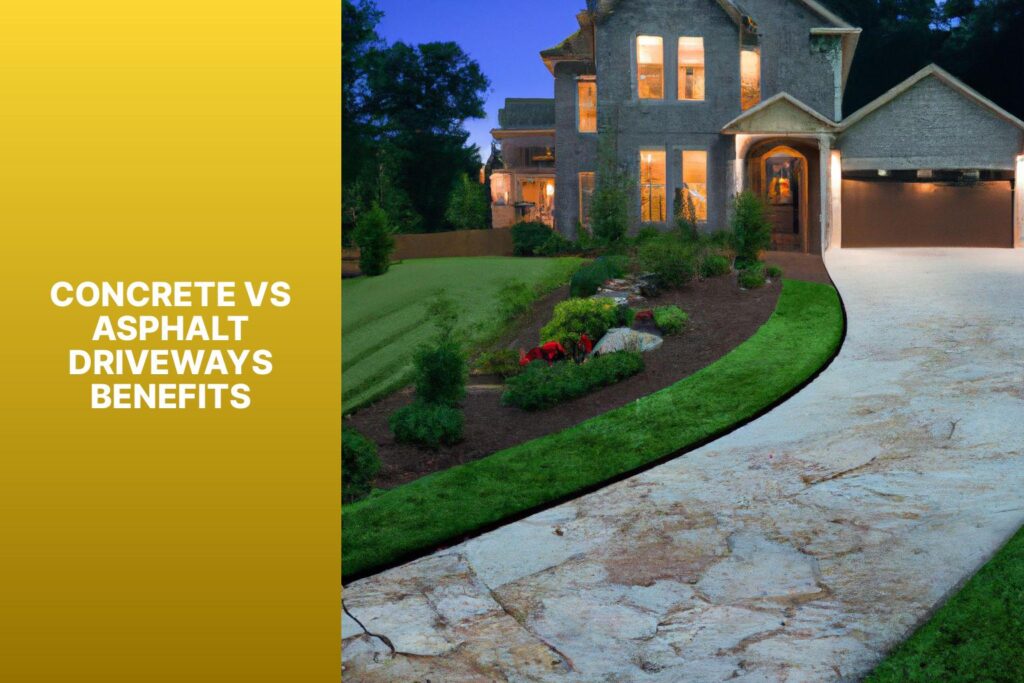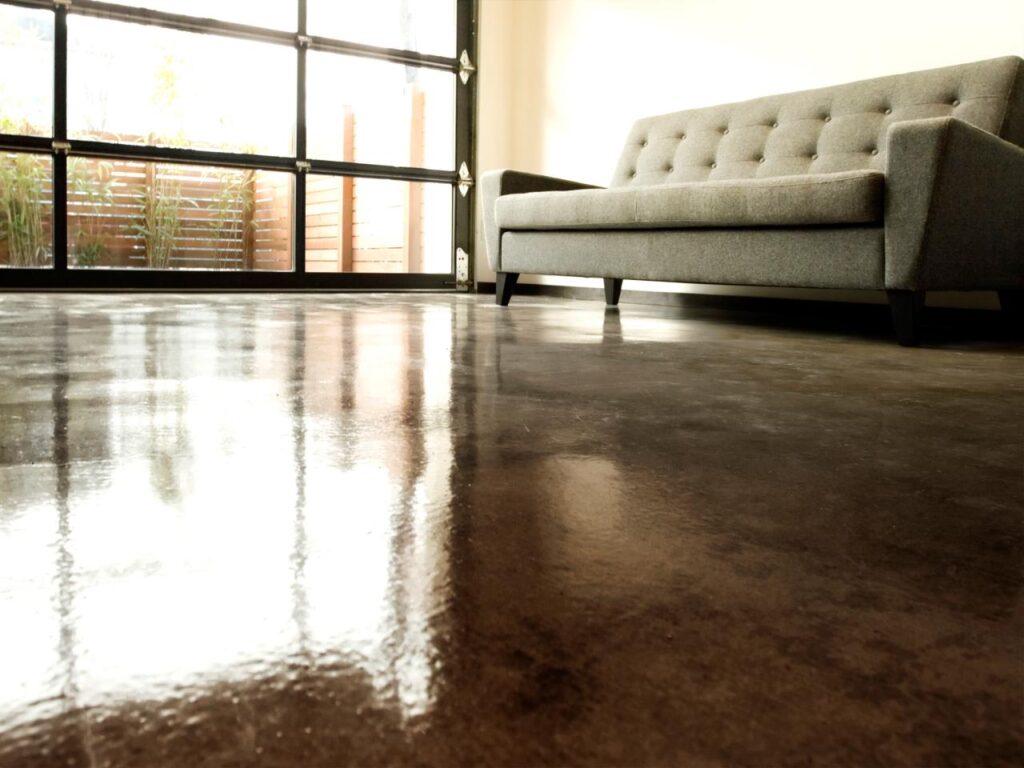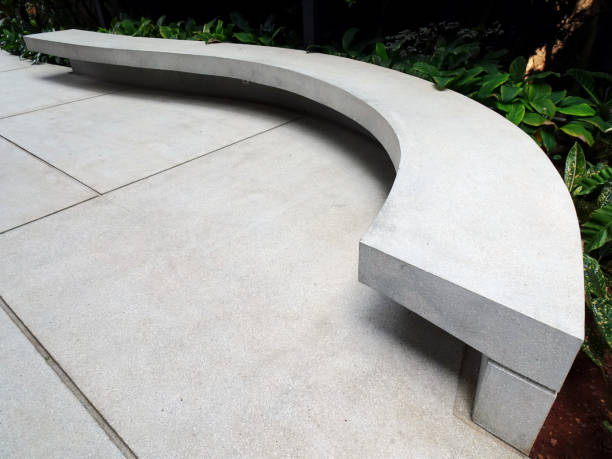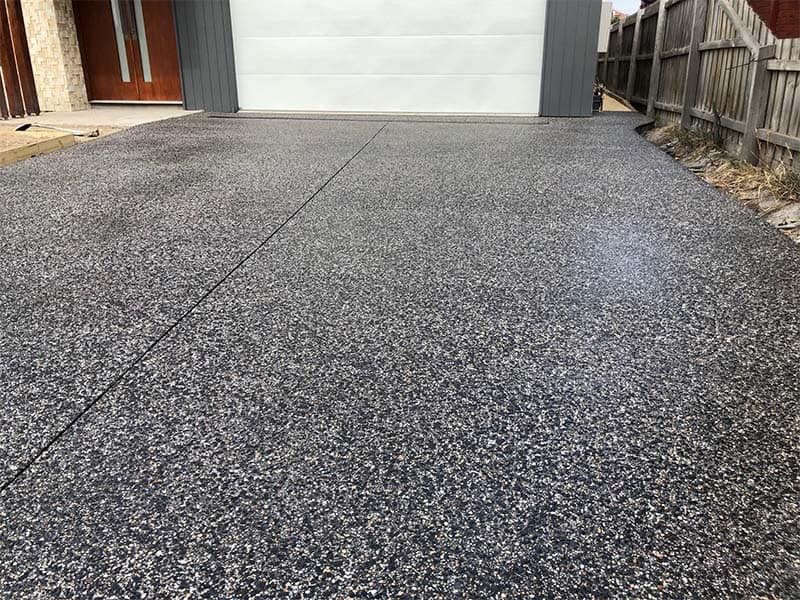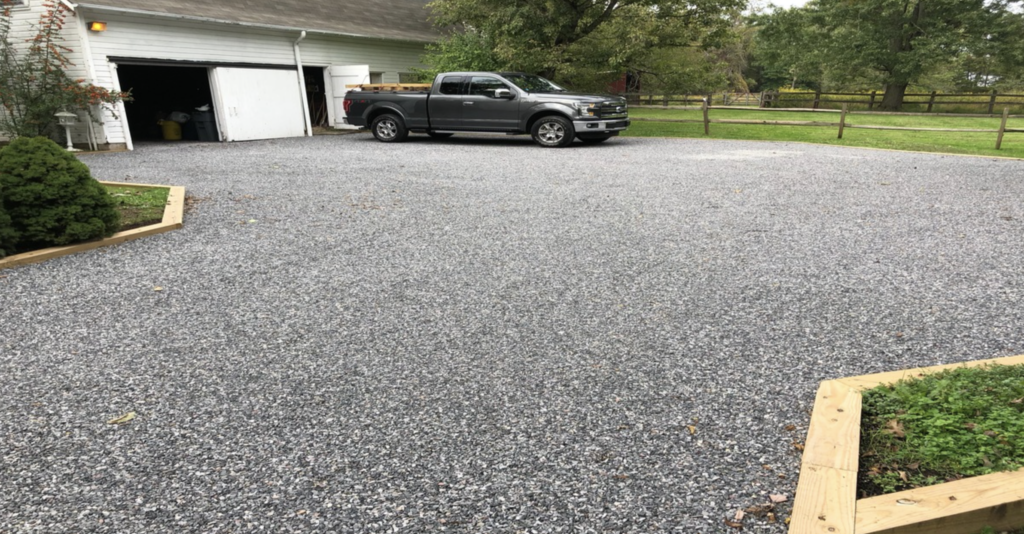Concrete or Asphalt Driveways: What’s Best?
When picking between concrete or asphalt driveways, there are a few things to consider. Both have their own pros and cons. Concrete is known for its long life and durability. On the other hand, asphalt is more affordable and easy to repair. Weighing these factors helps you decide which material is best for your driveway.
Concrete driveways have an advantage. They can handle heavy loads without cracking or wearing away. This makes them perfect for homes with heavy vehicles or equipment. Plus, they can be customized with colors and designs to match your home.
Asphalt driveways are a more cost-effective option. They’re cheaper to install than concrete. If repairs are needed, you can easily fill in cracks or apply a new layer of asphalt.
John recently replaced his gravel driveway with a more durable option. After careful thought, he chose concrete for its strength and ability to hold multiple vehicles.
Overview of concrete driveways
Concrete driveways boast a plethora of benefits, making them the go-to choice for homeowners. Their robustness and longevity mean they can endure heavy vehicles and tough weather with ease. Plus, these driveways don’t require much maintenance – just some occasional cleaning and sealing.
Another perk of concrete driveways is their design versatility. Homeowners can customize them in lots of ways, from colors to patterns to textures. This allows for an eye-catching entrance that adds value to the property.
Concrete driveways also have superior strength compared to other driveway materials, like asphalt. This means they’re less prone to cracks and potholes caused by traffic or extreme temperatures. With proper installation and maintenance, these driveways can last for years without major repairs.
Not to mention, concrete driveways also come with environmental benefits. Concrete is a sustainable material that can be reused and recycled. Plus, its light color helps reduce the heat island effect in cities, leading to a cooler environment.
It’s essential to hire a professional contractor for installation though. Otherwise, you could end up with cracking or uneven surfaces over time.
According to the NRMCA, concrete is the most commonly used construction material due to its strength, sustainability, and adaptability.
Benefits of concrete driveways
Concrete driveways offer many benefits. They are strong, improve the look of a property and need minimal upkeep – saving time and money! They can handle heavy traffic without wearing down. Plus, the smooth surface is perfect for activities like basketball or bike riding.
Functionally, concrete driveways have no equal. They withstand weight from multiple vehicles, are resistant to stains and oils, and make cleaning any spills easy.
Investing in a concrete driveway will also increase the value of your home, as potential buyers prefer features like a durable and attractive driveway.
Historically, concrete has been used for centuries. The Romans used a form of concrete made from lime, sand and volcanic ash for their roads and structures. This shows the durability of concrete for driveways.
Overview of asphalt driveways
Asphalt driveways are a great choice for homeowners. They look sleek and smooth and they’re cost-effective too! Here’s what we need to know:
Features:
- Durability – long lifespan
- Cost – cheaper than concrete
- Installation – quick and easy
- Maintenance – regular sealing helps keep them in good shape
Plus, asphalt driveways can handle extreme weather conditions. This resilience keeps them strong and reduces the need for repairs.
And, asphalt driveways can be repaired easily. Cracks and potholes can be patched up quickly, restoring smoothness without a lot of hassle.
Benefits of asphalt driveways
Asphalt driveways are popular for homeowners due to their many benefits. They are durable, require little maintenance, and provide excellent traction. Plus, they look great with a sleek, smooth appearance. They are also cost-effective compared to other driveway materials. Asphalt can even be recycled and reused. Edward Joly pioneered the use of asphalt for paving in America in the late 19th century. All these advantages make asphalt driveways an excellent choice for quality, long-lasting driveways.
Comparison between concrete and asphalt driveways
Concrete and asphalt driveways both have their own unique advantages, making them popular with homeowners. Let’s compare the two!
| Concrete Driveway | Asphalt Driveway |
|---|---|
| Durability | High |
| Maintenance | Low |
| Cost | Expensive |
| Appearance | Smooth |
| Installation | Time-consuming |
Concrete driveways are well-known for their strength and low maintenance needs, making them a great long-term investment. However, they can be more expensive compared to asphalt driveways. Plus, they have a smooth finish that can improve the overall look of a property.
Asphalt driveways are a more affordable option upfront but require more maintenance in the long run. Regular sealcoating is essential to extend their lifespan. Despite this, asphalt provides a textured surface that can give character to a driveway.
It’s important to note that the history of concrete and asphalt dates back decades. Concrete driveways became popular in the early 20th century due to their durability and versatility. In the mid-20th century, asphalt gained popularity as an economical alternative to concrete.
Conclusion
The pros of concrete and asphalt driveways are obvious, making the pick between the two mostly a matter of personal taste. Concrete is tough and can be personalized with designs like stamped or stained. Plus, requires less upkeep than asphalt. Asphalt, on the other hand, has the advantage of melting snow and ice easily due to its black colour. It’s also recyclable, making it eco-friendly.
Concrete has been used for driveways since Ancient Rome. Even today, it is still a popular choice because of its robustness and longevity. Asphalt became widely used in the 20th century when technology made its production simpler.
Frequently Asked Questions
1. Q: What are the benefits of a concrete driveway over an asphalt driveway? A: Concrete driveways offer greater durability and longevity compared to asphalt driveways. They are less prone to cracking and require less maintenance. Concrete driveways also have a sleek and modern appearance that enhances the curb appeal of a property.
2. Q: Are asphalt driveways more cost-effective than concrete driveways? A: Initially, asphalt driveways tend to be more affordable than concrete driveways. However, over time, concrete driveways can prove to be more cost-effective due to their longevity and lower maintenance requirements. In the long run, concrete driveways may require fewer repairs and need less frequent resurfacing.
3. Q: Which driveway option offers better resistance against extreme weather conditions? A: Concrete driveways are more resistant to extreme weather conditions such as hot summers or freezing winters. They have better resistance to high temperatures, preventing heat-related damage or softening. Concrete driveways also hold up well against de-icing chemicals used during snowy conditions.
4. Q: Can I personalize the appearance of my concrete or asphalt driveway? A: Both concrete and asphalt driveways can be customized to some extent. Concrete driveways offer more decorative options, including stamped patterns, texture, and color choices, allowing for a unique and personalized finish. Asphalt driveways, on the other hand, are limited to color variations and basic designs.
5. Q: Which type of driveway requires more maintenance? A: Asphalt driveways generally require more maintenance compared to concrete driveways. They need to be resealed every few years to maintain their integrity and appearance. Concrete driveways, although low maintenance, may require occasional cleaning and sealing to protect against stains and prolong their lifespan.
6. Q: How long do concrete and asphalt driveways typically last? A: Concrete driveways have a longer lifespan, often lasting up to 30 years or more with proper maintenance. Asphalt driveways have a shorter lifespan of around 20 years but can be extended with regular upkeep. Factors such as climate, usage, and maintenance practices can affect the longevity of both types of driveways.
About the Author:
Mike Veail is a recognized digital marketing expert with over 6 years of experience in helping tradespeople and small businesses thrive online. A former quantity surveyor, Mike combines deep industry knowledge with hands-on expertise in SEO and Google Ads. His marketing strategies are tailored to the specific needs of the trades sector, helping businesses increase visibility and generate more leads through proven, ethical methods.
Mike has successfully partnered with numerous companies, establishing a track record of delivering measurable results. His work has been featured across various platforms that showcase his expertise in lead generation and online marketing for the trades sector.
Learn more about Mike's experience and services at https://theleadguy.online or follow him on social media:
